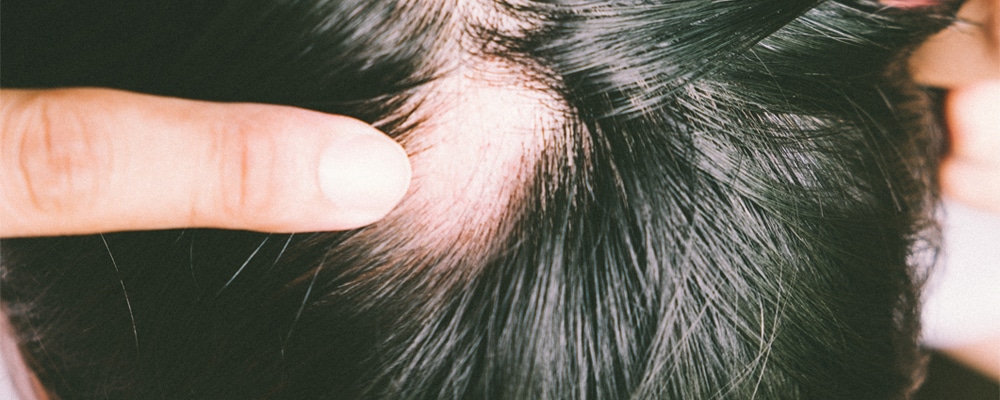Alopecia areata is a distressing condition that causes a person’s hair to fall out in small patches. While initially not overly noticeable, if patches begin to connect, then the hair loss is apparent for all to see.
At Skin Care Research, we are enrolling patients in a clinical trial involving alopecia areata. Here’s some more information about this condition.
What is alopecia areata?
It’s never good when our powerful immune system turns its eye from outward invaders such as viruses and looks inward. In rheumatoid arthritis, the immune system cells attack the joints. In lupus, autoimmune antibodies attach to tissues throughout the body, from the lungs to the nerves to the kidneys. In multiple sclerosis, the immune system attacks the nerve cells. In psoriasis, overactivity in the immune system causes overproduction of skin cells, creating scaly patches.
With alopecia areata, the immune system attacks the hair follicles.
What are the symptoms of alopecia areata?
The main symptom is hair loss, but you may notice certain trends:
- Small bald patches show up on your scalp or other body parts
- Patches may get larger and grow together into a bald spot
- Hair grows back in one spot and falls out in another
- You lose a lot of hair over a short period of time
- You lose more hair in cold weather
- Your fingernails and toenails become red, brittle, and pitted
Can my hair grow back naturally with alopecia areata?
Hair can grow back with this condition, but it’s far from a guarantee. Plus, as mentioned above, it may grow back here only to fall out anew over there. There is no cure for alopecia areata, but many treatments are being researched, hence our clinical trial at Skin Care Research.
The goal with alopecia areata is stop future hair loss and to help the hair grow back more quickly. This is usually accomplished through different treatments:
- Corticosteroids — Given as an injection into the scalp, orally, or topically, these drugs stop the inflammation in the follicles.
- Topical immunotherapy — If there is a good deal of hair loss, this treatment involves applying chemicals to the scalp to produce an allergic reaction. The reaction actually triggers new hair growth.
- Minoxidil — This topical treatment takes a while to show results and it doesn’t work for everyone.
If you’re suffering from alopecia areata, Skin Care Research is currently enrolling qualified participants in an Alopecia Areata Clinical Research Trial. To qualify, participants must have at least 25 percent hair loss. To learn more, call us at (561) 948-3116.

